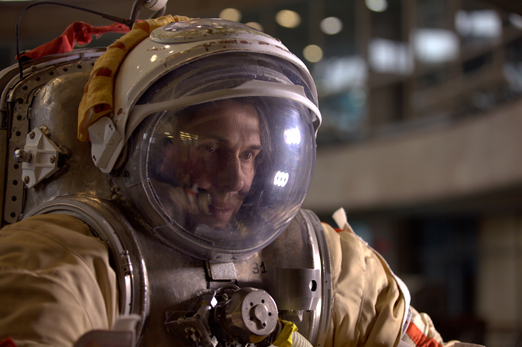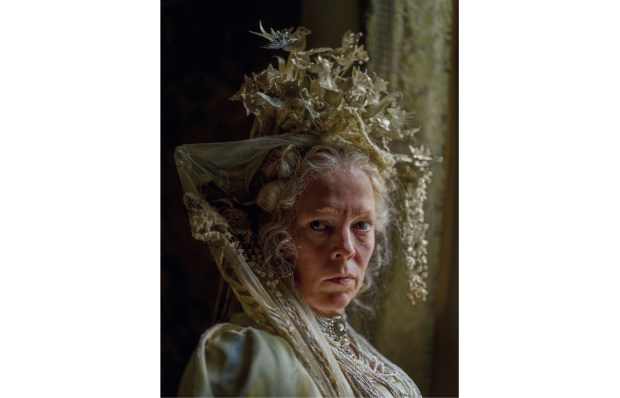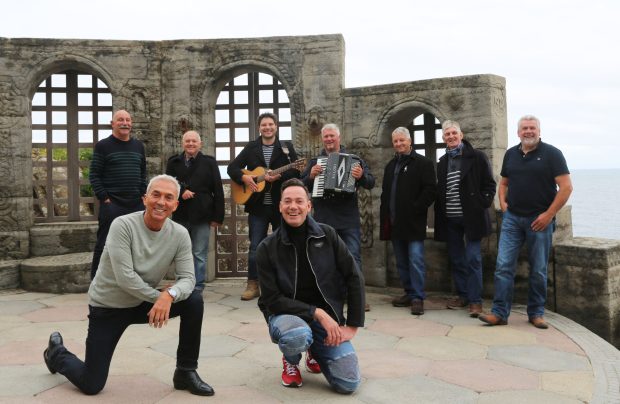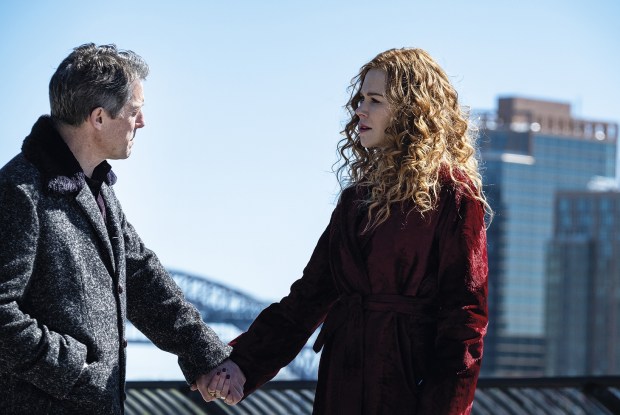Anybody feeling a bit depressed about the shortcomings of humanity could do worse than watch Brian Cox’s new series Human Universe (BBC2, Tuesday) — which, judging from the first episode, is all about how great we are.
Early on, Cox was shown hanging out, Attenborough-like, with some gelada baboons in the highlands of Ethiopia. They may share a common ancestor with us; by primate standards, they may have unusually complicated social structures and communication skills. Yet, as Cox rather gleefully pointed out, ‘They’re nowhere near as sophisticated as us.’ No wonder that while these losers are picking fleas off each other in a remote corner of Africa, we’ve not only ‘colonised every corner of the earth’, but can also live in space.
So, as Cox’s central question here put it, ‘What is it that makes us so special?’ The answer, you may not be surprised to hear, is the human brain, aka ‘the most complex physical structure we know of anywhere in the universe’. But that, of course, prompts other questions. How did our brains get so big in the first place? And how, in Cox’s favourite formulation of the night, did we go ‘from apeman to spaceman’ in just 250,000 years — or, if you prefer, ‘one-thousandth of one per cent of the age of the universe’?

These days, there seems to be a trend for history at its most sweeping, and this programme was certainly part of it. One minute, Cox was in the Great Rift Valley where proto-humans first shaped spearheads from stones, thereby signalling the moment we learned to imagine things that weren’t already there. Not long afterwards, he was in Petra, explaining the transition from nomadism to ‘civilisation’ (a word he used as unselfconsciously as Kenneth Clark once did). This in turn led to perhaps the biggest breakthrough of the lot: the invention of writing, which meant that knowledge could now be permanent, saving us the bother of having to work out things already discovered in other places and times.
Cox’s next leap was an especially big one — because from the ruins of Petra he headed to the Kazakhstan steppes to greet the Soyuz spacecraft bringing three astronauts home from the International Space Station. On the car journey there, he neatly proved his thesis about the importance of writing by scribbling on a scrap of paper the equations that allowed for the Soyuz’s re-entry into the Earth’s atmosphere — equations, he noted with a genuinely touching sense of awed gratitude, that were first discovered, and written down, by Isaac Newton. (‘If it was just up to me, we’d have no chance.’)
And with that, Cox put down his scrap of paper, shouted ‘Go!’ and, while the urgent music swelled and the cameraman excitedly waved his camera about, raced to the spacecraft to get us a ringside seat as the astronauts emerged. (‘They look absolutely knackered,’ he observed accurately.)
In other words, his usual combination of unashamed science, impressive visuals and, it must be admitted, a distinct lack of bashfulness about his own role in proceedings remains firmly in place. Luckily, though, it’s also as effective as ever — with Wednesday’s rosy view of human progress giving those world-changing brains of ours a thorough and often exhilarating workout.
Grantchester (ITV, Monday) appears to be part of a new trend too, albeit a less scholarly one: the tendency for the sort of cosy, heartwarming shows once found only on Sunday nights to be shown on other days of the week. Within minutes, we’d had the lingering shots of the British countryside and a telegenically puffing steam train — and had discovered that the main character was a bicycling clergyman sleuth of the 1950s.
Sidney Chambers, created by James Runcie and apparently based partly on his dad Robert, is also the sort of vicar who would have been a Barbara Pym spinster’s dream: kindly, charming and, as played by James Norton, quite a hunk. The advance publicity claimed that Grantchester would be tougher than its outward appearance might suggest — but so far this feels unlikely. On Monday, the pace was almost pathologically leisurely, with too much time wasted on moments of fake jeopardy, such as whether what seemed a suicide was really a murder, whether Chambers would waive his ecclesiastical duties to investigate and whether his growing suspicions would ever be taken seriously by the local police. (Answers: yes, yes and yes.) And just in case the programme wasn’t loveable enough already, halfway through he took delivery of a black labrador puppy.
In short, give or take the odd ‘piss’ and ‘bugger’ — and an obvious coyness about mentioning religion — this was a drama that could have been broadcast any time in the past 50 years (although probably on a Sunday night). Which is, I suppose, either a criticism or an accolade, according to taste.
Got something to add? Join the discussion and comment below.
Get 10 issues for just $10
Subscribe to The Spectator Australia today for the next 10 magazine issues, plus full online access, for just $10.
You might disagree with half of it, but you’ll enjoy reading all of it. Try your first month for free, then just $2 a week for the remainder of your first year.













Comments
Don't miss out
Join the conversation with other Spectator Australia readers. Subscribe to leave a comment.
SUBSCRIBEAlready a subscriber? Log in